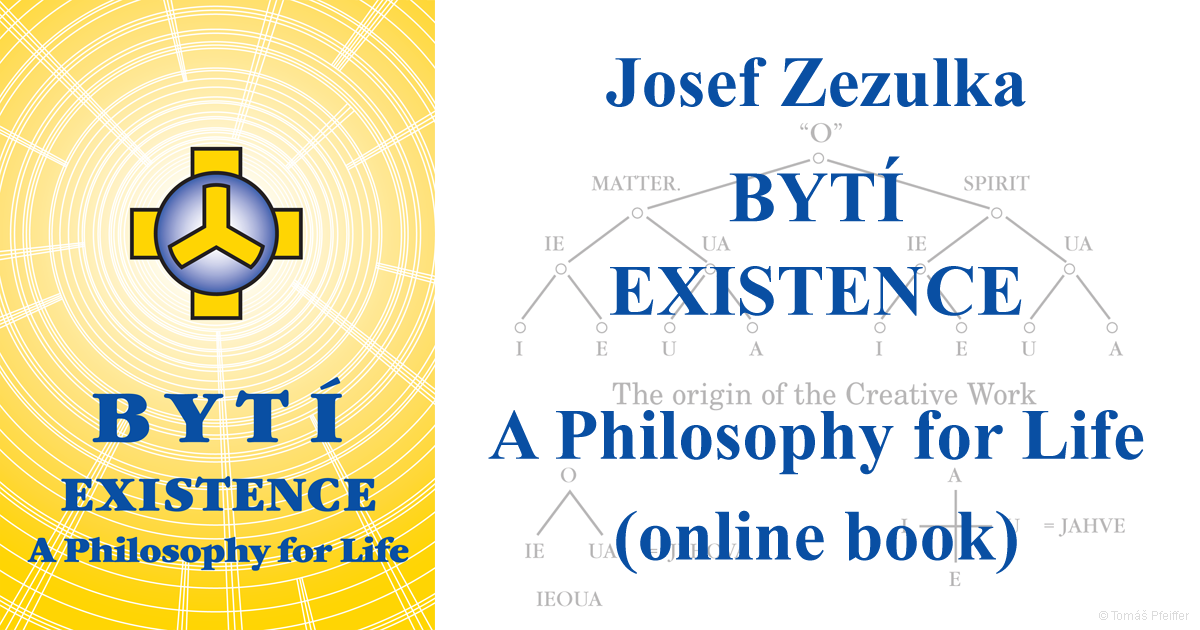REINCARNATION
I speak about reincarnation, about the evolutionary journey of a being through numerous lives, about dying and being born again. In the spiritual doctrine this is considered to be true since it is one of the laws of evolution. It was considered true in all of the fundamental religious doctrines, it is refuted only in certain churches despite the fact that the original doctrines of these churches taught it. This is mostly relevant with weaker and lower churches and sects and it is perhaps because of ignorance or the inability to explain it. At a certain point the original spiritual wisdom was lost and a simple pattern of blind faith took its place.
The inner being lives through many lives, from the most primitive up through numerous human incarnations up to the most perfect and final re-integration with the Podstata. I also call the inner being “the being of the Creative Work”. This is because during its life it goes through the Creative Work, which it vitalises by its presence and fulfils its qualities. The being, as was said earlier, is continually re-formed and created, moving towards perfection – towards balance.
Specific lives are stringed on it as beads on a thread. There are many of them. In the beginning they are the lives of primitive plants, then lower animals, then they progress higher and higher up to human form and past human further into higher incarnations and creatures. It is constant reincarnation into next suitable fates, events and situations that a creature must live for learning purposes. Reincarnation appears as follows:
We will talk about human lives since they are closest and most easily understandable for us.
A single specific life lasts from the incarnation into a new body until the moment immediately before another incarnation. At this moment one episode occurs – we shall call it the death of the body. It is not so dramatic as people think. The body – as the part of human at the bottom of the order – decays quite fast. It develops for about 25 years after birth. This period of time is individual but then development stops and decline starts relatively soon. The antipole of formation – termin ation begins. It progresses individually again, fast or slowly and leads to bodily death. The length of this phase is influenced by earned fate, vital potency and partly also by the way of life that the individual has become accustomed to. It is also influenced, among other things, by a good or bad environment, which corresponds to the whole of human society, the way of life of the society, its habits, the unquestioning acceptance of ancestors’ habits.
Things that have a positive effect: the wisdom of the individual, his criticism of bad habits in his current human society, the correction of these habits and the adaptation of his life style to the most ideal natural way of living, the favourable development of health care, cures making dangerous diseases history, and so on.
The body will expire one day, though. A man shakes it off and leaves it. Bodily matter emptied of human being and its vital force is further subject only to the laws of matter. It decays, decomposes and disappears. The man who has left his body lives on in the consciousness of his continuing specific life. He lives the second part of his life without a body. He has no senses (sight or hearing for example) through which he was connected with the material events of this world, but he retains the consciousness of his being. With it he embraces the field that he was cultivating with his life. He cultivated his particular inclinations and now he radiates the influence of his quality (vibration). According to this, he further seeks the same qualities in those currently incarnated as well as those not incarnated. If he had been for example an alcoholic and a thug, he would be attracted into the same environ ment and among the same people. There he feels himself at home as he perceives their thoughts. A good man is inclined to seek good men. An artist is drawn to artists of his own genre and a philosopher to philoso phers. A man who always wanted to help others and had learned spiritual truths to a certain extent is inclined to go where he can help with his influence and become a spiritual protector of those with whom he is in tune spiritually. Beings of certain spiritual direction or cult join other beings with the same inclination and use their influence to help incarnate beings with the same inclination. Thus all those who are not incarnated find themselves in such areas that they cultivated during their incarnated lives and to which they grew in their evolution. Here, too, relationships with other individual beings, which were cultivated in the course of reincarnation, are involved. There are many influences that produce the way and quality of posthumous existence.
In the bodiless state, a being feels as it did during its last material life. It is still the same specific life as when the body was abandoned. This specific life ends just before the next material incarnation. Then, a being reaches a state of happiness, then haziness and unconsciousness. Here the existing consciousness of its specific life disappears and it slowly starts to connect to the body of another incarnate who is still in the womb of his mother. Only people from higher evolutionary incarnations during the second bodiless part of their life can – depending on their state of advancement and will – occasionally connect to their own inner being.

